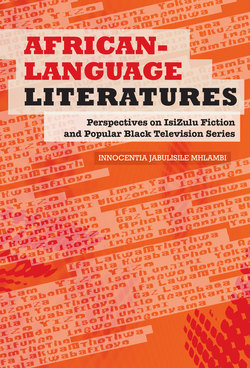Читать книгу African-Language Literatures - Innocentia Jabulisile Mhlambi - Страница 15
На сайте Литреса книга снята с продажи.
Proverbs as titles of narratives
ОглавлениеThe meanings given to the proverbs incorporated in various contexts reflect what social trends are permissible or impermissible in the thought of the time. Nyembezi (1949) maintains that, in instances where the new trends are resisted or completely blocked, that is where social thought is opposed to the emergent trend, and then the interpretation of the proverb would revert to the original. In Aphelile Agambaqa the new trends that typify contemporary African society are the diminishing value of traditional families where the father has been the unquestioned head, changing gender roles, diminishing socio-cultural values and problems with cultural relevance. In the context of this narrative, and perhaps generally, these trends which have typified modern African societies since the period of industrialisation, urbanisation and modernisation are disparaged as either causes of, or being instrumental in, the decline of an African cultural ethos. In the narrative the absence of a father figure in the life of Nomvula and again in the first few years of her son, Sibusiso, can be read as a strategy to illuminate problems with dysfunctional families.
The narrative seems to postulate that the absence in Nomvula’s life of a father figure, a patriarchal authoritative figure who both acts as guardian of cultural practices and leader of a household, allowed for insidious and deviant behaviour on her part, such as her conception of her child out of wedlock. This observation is made by her sister when she quotes the proverb ‘lafa elihle kakhulu … kazi Khabazela uyazi yini lapho ulele khona ukuthi emzini wakho sekukwamachaca impunz’ idle mini’. (Gone are the good old days…I wonder if Khabazela (Nomvula’s father) knows wherever he is in the afterlife that his home has been turned into a playground) (Radebe, 1996: 9). These proverbs are used to highlight the decline of values and, in particular, to emphasise the fact that the absence of a father in his family allows his offspring to do as they please. The narrative is concerned with the possibility of this happening to Nomvula’s son as well. In an attempt to avoid this occurrence the narrative strategically assigns proverbs to various characters so that all their observations regarding dysfunctional families are underlined by the original proverb or by variants that have a similar meaning to that used as the title. I revisit this notion later in the discussion.
In instances where a proverb’s timelessness might encounter limitations because of emergent trends, the linguistic formulation of the proverb is extended, as is the case with Impi YaboMdabu Isethunjini. Pfeiffer (cited in Biesele 1993) observed this in Ju/’hoan tales. He asserts that the reiteration of oral tales is an indication that certain values are under pressure. His examples of artistic reiteration examine the idea of egalitarian food sharing and that such reiteration may not reflect abundance but rather the violation of the policy regarding food sharing.
The same could be said in cases of narratives that guard against the violation of social codes. The reiteration of proverbs warns or advises against acceptance of trends that would have a negative impact on the social cohesion established by older generations. Through the use of the extended proverb Impi yaboMdabu Isethunjini (the war of the Africans is in the intestines) the author indicates that the applicability of the proverb should go beyond intimate family intrigues, as the original form does not include national and social issues that affect black identity such as class disparities in African society, education, politics, employment and social morality. The tensions that play themselves out in the narrative between the rural and the urban family members are projected as being beyond seemingly trivial family conflicts relating to who is responsible for children begotten out of wedlock in order to touch on socio-economic and political issues affecting Africans in a post-apartheid context. The narrative makes the claim that while change and transformation are essential to progress, certain aspects of this progress are not commensurate with traditional values. Transformational tendencies are therefore carefully sifted through the ordering and structuring of narratives or axioms and their validity evaluated against a pre-existing oral archeology.
